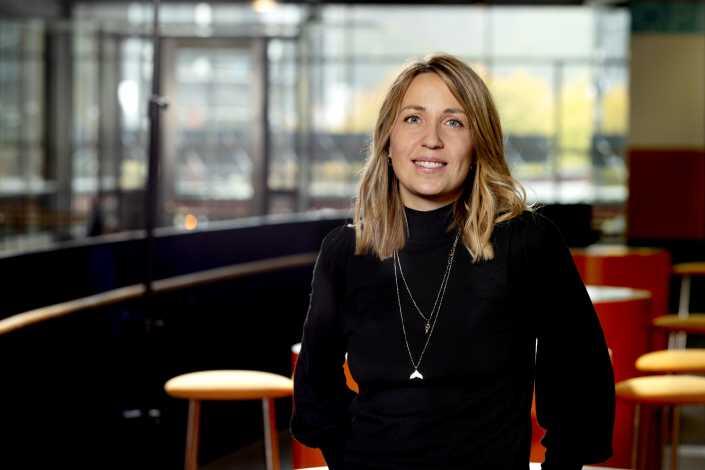SpaceEdge 2
The trend of mega satellite constellations with advanced sensors that produce enormous amounts of data is currently transforming the space industry. The entrance of these constellations will require changes to how data is analyzed, stored, processed, and delivered. A potential and disruptive solution is to move the processing tasks to the edge, i.e. relocate the data processing task onto the satellites.
About this project
The project SpaceEdge 2 is performed in collaboration between Unibap and AI Sweden, to focus on the refinement of edge technology for terrestrial and in-orbit data handling and utilization of data for development and training of AI/ML (machine learning) applications.
Drawing from the synergies with AI Sweden’s space projects and partner ecosystem, we are engaging with potential partners and collaborators to bring in ideas of applications that can be deployed on the SpaceEdge platform to test and validate applications. The project has gathered interest groups with experience in AI (artificial intelligence) and those in the Space domain.
A potential and disruptive solution is to move the processing tasks to the edge, i.e. relocate the data processing task onto the satellites. The project SpaceEdge 2 is performed in collaboration with Unibap and AI Sweden, to focus on developing edge technology tailored for data handling on board satellites and increasing the communication efficiency between in-orbit stations and the ground station.
By testing AI/ML models and the decentralized setting first at AI Sweden’s lab on Unibap’s hardware units, we can effectively simulate the in-orbit conditions and, therefore, identify and solve potential issues in the safety of a lab on the ground. Once stable conditions are reached, we will move the testing on board for future Unibap missions.
During this process, we will produce technical reports on the storage and computing requirements imposed by the use of AI technology on edge devices.
Challenges
A large portion of the Space infrastructure is geared towards Earth Observation (EO), which produces massive amounts of data, that can be used to train ML models that can be used in real-time decision-making on the ground. However, as with any model, it is important to understand how they behave and how reliable the predictions are under different conditions.
Research in this area is required to benchmark the performance of ML models and data handling on edge devices tailored for space missions.
As constellations of satellites are increasingly becoming a new standard, we need to understand the challenges of distributed computation, decentralized learning, and model understanding in this configuration.
Expected outcomes
The main goal is to take an international lead in edge learning and edge computing in space by demonstrating end-to-end on-board AI (data-driven) information processing by leveraging the combined national competencies and resources from Unibap (Uppsala), AI Sweden Edge lab (Göteborg), and with other contributors in Sweden (using VPN access).
We will shift the compute process to the edge, leveraging decentralized learning:
- to further reduce communication latency
- improve the quality of training data
- limit the need for bandwidth on the ground to satellite communication.
This has the potential to create conditions for innovation within areas of applied AI and ML, to prioritize model explainability, distributed computing, and decentralized learning, while also underscoring the importance of computational and software infrastructure existing in hardware designed for space.
This setup is specially created such that applications from other stakeholders are
also built and enabled on it, as demonstrated in the first year of the project. This fosters interdisciplinary dialogue while providing input for the development of both AI technology and infrastructure in space, making it a unique arena that propels innovation in space technology as well as space data exploitation.
SpaceEdge 2 is enabling us to perform methodology exploration, investigate data management in space, and leverage distributed computing and learning algorithms in space. The project will provide in-depth knowledge about the latest CPU/GPU solutions and the development of accelerators for AI/ML that can be utilized onboard satellites in space.
Moreover, SpaceEdge should contribute significantly to Agenda 2030.
Status
The software release now enables satellite application management from development via deployment to execution in satellites. We are currently testing the hardware and will produce reports defining the requirements for a conceptual design of next-generation payload hardware.

Facts
Funding: Rymdstyrelsen & Unibap
Total budget: 6.75 MSEK
Participants: Unibap & AI Sweden
Project period: 1 year, Ending in August 2024
For more information, contact


